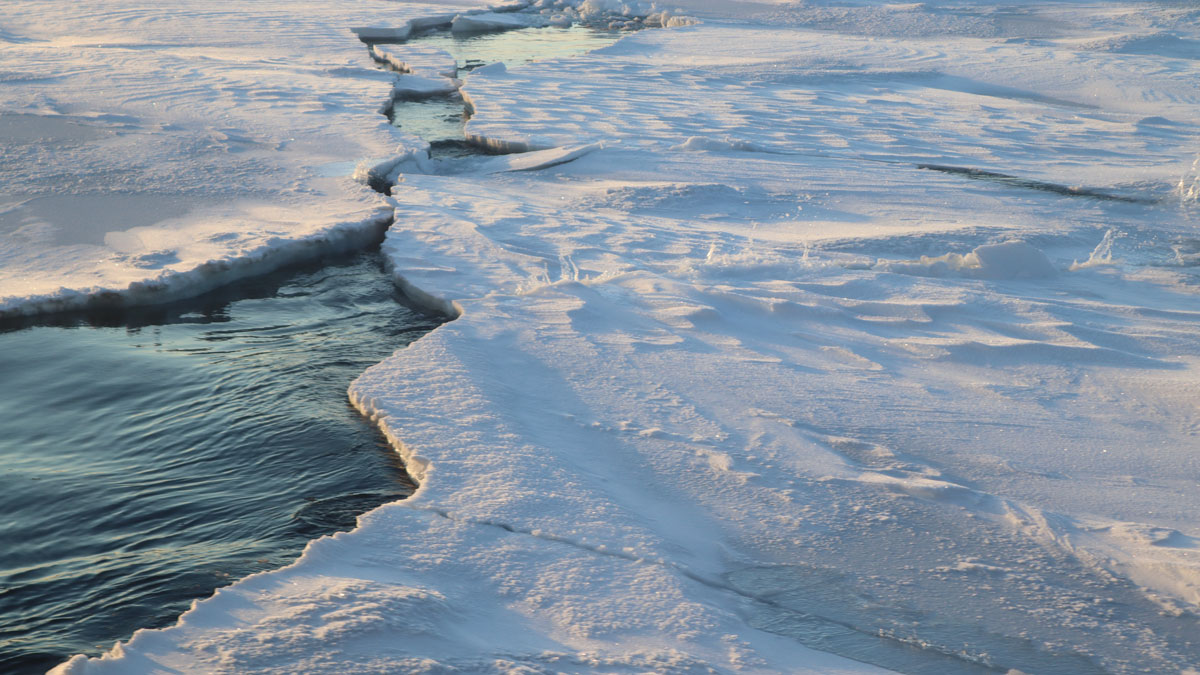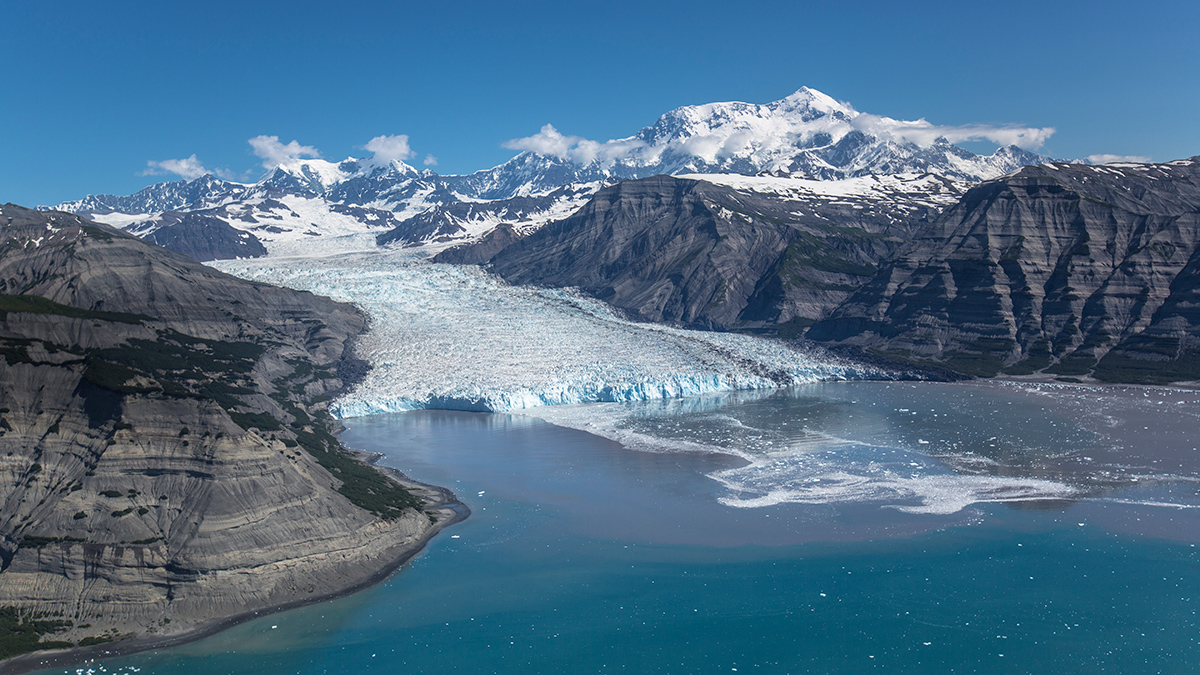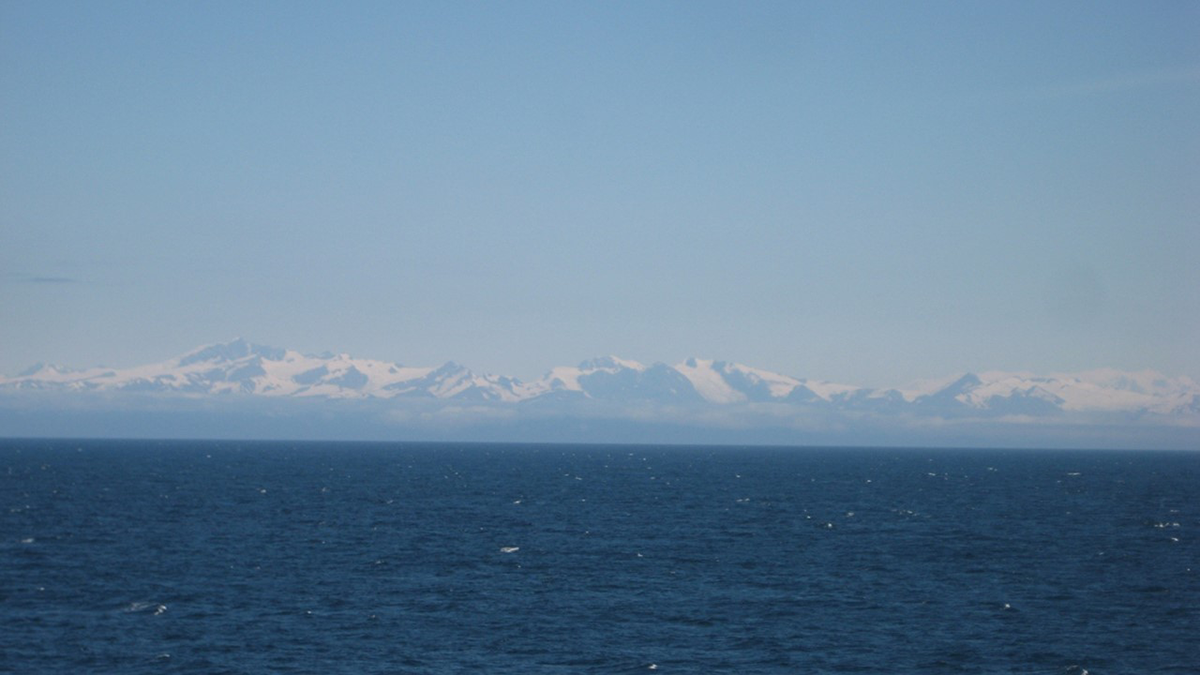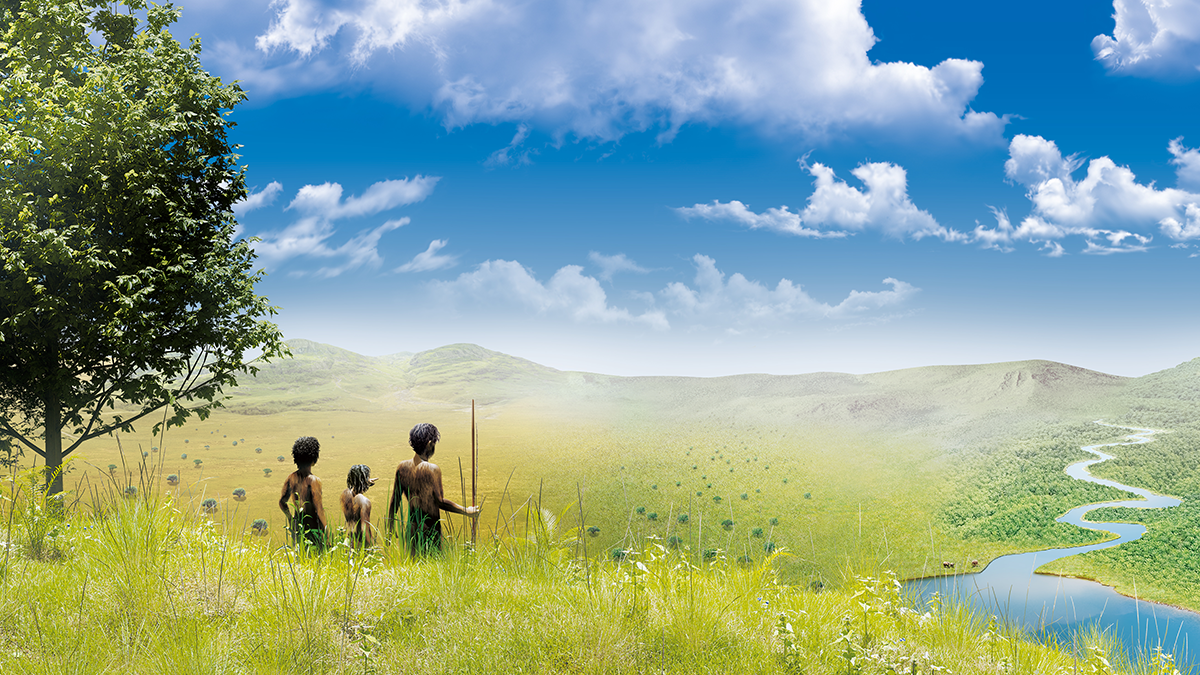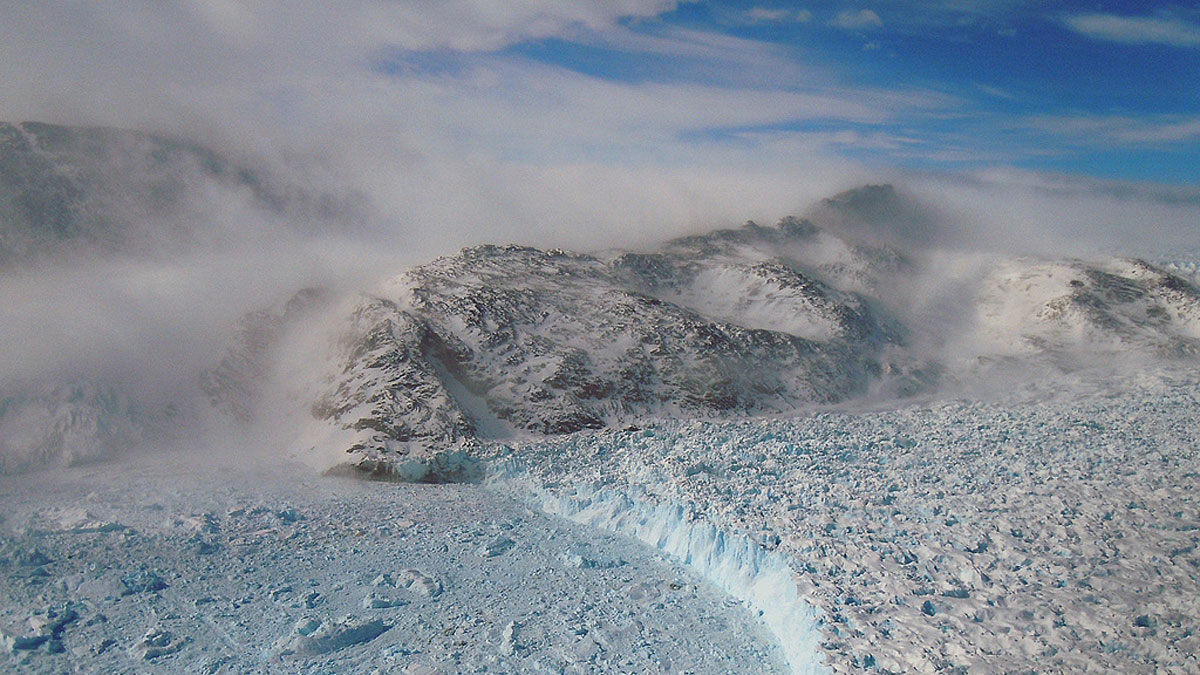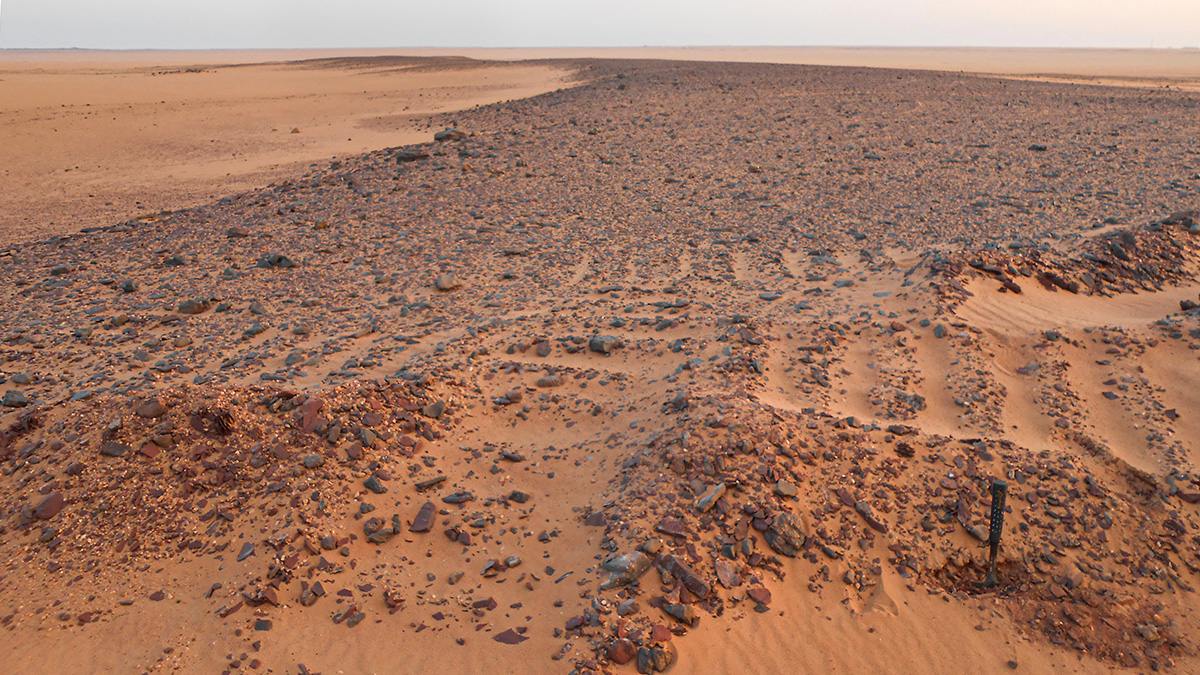Understanding the effects of a “blue” Arctic Ocean on future climate requires a coordinated effort to study Earth’s past warm periods using a variety of classical and cutting-edge methods.
Pleistocene
Elementary, My Dear: Al & Be Give Evidence of Past Climate Change
10Be and 26Al concentrations in river sand reveal an increase in erosion rate in the Brazilian Highlands consistent with the Mid-Pleistocene Transition, a major climatic shift that occurred about 1 million years ago.
A Million Years Without a Megaslide
A new study goes deep into the Gulf of Alaska to examine the sixth-largest underwater landslide and investigate why a similar event hasn’t happened since.
Water Corridors Helped Homo sapiens Disperse out of Africa
Wetland conditions during the last interglacial period in parts of the Levant helped propel our ancestors into Arabia, new research suggests.
Marine Sediments Reveal Past Climate Responses to CO2 Changes
Climate records stored in marine sediments reveal different ice sheet and ocean responses to falling atmospheric CO2 concentrations from the warm Pliocene to the ice ages of the Pleistocene.
Pliocene Conveyer Belt in the Pacific
Ocean Drilling Program cores and helium isotopes put better constraints on the ocean circulation in the north Pacific.
Humans Adapted to Diverse Habitats as Climate and Landscapes Changed
Long-term changes in Earth’s climate affected the dispersal of human ancestors and their adaptation to diverse habitats, a new study finds.
Precession Helped Drive Glacial Cycles in the Pleistocene
By studying bits of rock scooped up by ancient glaciers, researchers have pinned down that recent glacial variability was driven, in part, by changes in the direction of Earth’s axis of rotation.
“Sticky” Ice Sheets May Have Led to More Intense Glacial Cycles
New research attributes a shift to longer, stronger glacial cycles to increased friction between ice sheets and bedrock in the Northern Hemisphere 1 million years ago.
The “Green Sahara” Left Behind Fossil Rivers
Reconstruction reveals how people living along the banks of the Nile may have relocated as climate changed and flooding increased during the African Humid Period.

